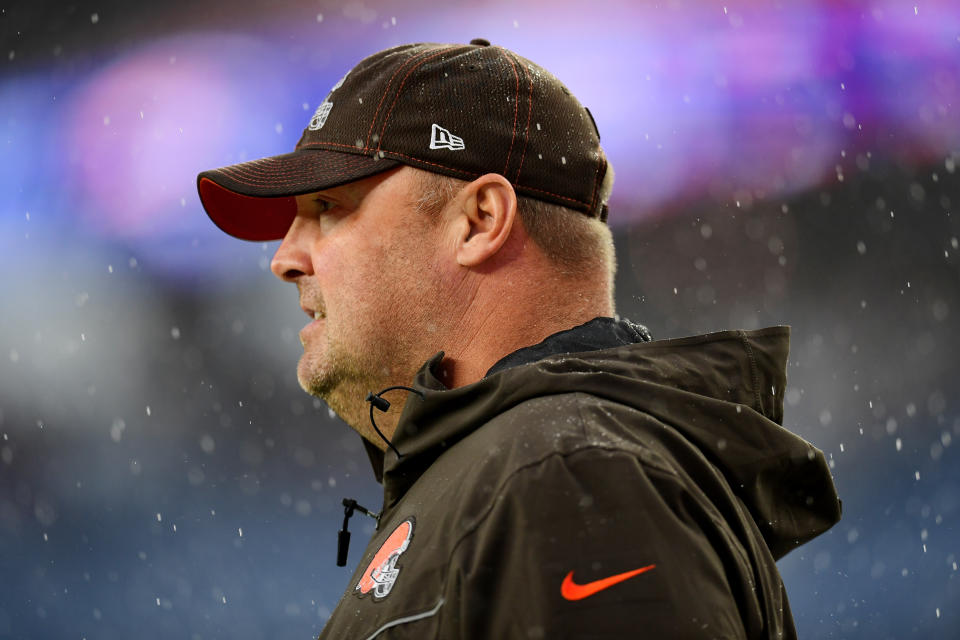Did Freddie Kitchens really call for intentional 4th-down penalty to save timeout?
The Cleveland Browns were in desperation mode late in Sunday’s loss to the New England Patriots.
Trailing 27-10 in the fourth quarter, they went for it on fourth-and-16. They didn’t convert. Which is fine. The down and distance make for a long shot, but it made sense to take the chance while trailing by three scores.
What’s not fine is how they reportedly got there.
Did Browns commit intentional penalty?
The Browns initially lined up for a punt on fourth-and-11. They got backed up five yards on a false start penalty, seemingly prompting second thoughts for head coach Freddie Kitchens, who sent his offense back on the field for the conversion attempt.
But according to a pair of reports, Kitchens didn’t have second thoughts after the penalty. He changed his mind prior to the false start.
[Watch live NFL games on the Yahoo Sports app, here's how]
CBS’s Tracy Wolfson reported during the game broadcast that Kitchens called for the intentional false start so he could get his punt team off the field. Browns broadcaster Nathan Zegura reported the same.
Kitchens reportedly wanted to preserve timeout
Cleveland had a timeout remaining. He reportedly preferred the five-yard penalty on an already improbable fourth-down situation than to use that timeout.

Never mind the idea that he couldn’t make up his mind on what to do and put himself in a position to have to burn the timeout or take the penalty to attempt the fourth-down conversion to begin with.
It’s that he decided that tacking five yards onto to the already long shot was the optimal decision that really stands out.
Mayfield got sacked on the play, and the Browns turned the ball over on downs.
Another bizarre decision
Kitchens also faced a postgame question on why he was rotating the right guard position between Eric Kush and Wyatt Teller throughout the game.
He told reporters he did so because he’s concerned about depth with nine games remaining in the season.
Because ... playing two different players reduces the risk of injury to one of them?
We’re not sure either.
What we are sure of is that Kitchens looks almost every week like he’s in over his head.
More from Yahoo Sports:

